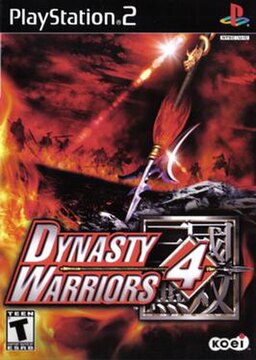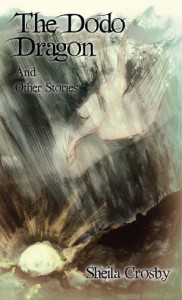As of this weekend, I’m no longer in the e-book publishing
business. I’ve enjoyed it, but I don’t see it as something that’s worth pursuing any longer, and I've handed the keys to Hukilau over to someone else.
There are two main reasons for this. This isn't a blame game or an excuse: it's just the way the market has developed, and it's both a curse and a blessing.
Reason 1: writers don’t need digital
publishers any more
When we started Hukilau, it wasn’t easy to get an e-book
published. The tools were arcane, the formats were obscure, and the submission
processes were tortuous. You could go it alone, but you needed to be pretty
tech-savvy and persistent just to get your book into the retail channels. We
offered people the opportunity to side-step all that. They gave us their books
in whatever format they had, and we’d get them out onto the Web sites with no
effort on their part. It was a useful role, and it bridged the gap between the
author and the retailer in a simple, understandable way.
Now, though, it’s dead simple to publish your own
e-books. There are a range of really simple
formatting tools around, and places like Smashwords will even accept your Word
file, so you don’t have to know anything at all about e-book formatting to get your
book onto Kindles, Nooks and iPads the world over. It takes literally ten minutes to put your
book on Amazon or Smashwords after the first time you’ve done it. There’s
simply no need for a publisher to get involved.
Incidentally,
I don’t think of places like Smashwords as publishers in the traditional sense.
They’re distribution services for self-publishers. They don’t curate their content in
any way, or promote anything they handle – the two things that in my mind
define a digital publisher. What Smashwords and their ilk provide is a public
conduit that allows anyone to get their books onto the major retailers with
minimal friction. It's a great service, but it's not the same as a publisher.
Writers make better promoters than publishers anyway
When it comes to promotion, it’s become clear that self-promotion
by individual authors is just as successful as publisher promotion for the
majority of titles. Unless the publisher is prepared to pay out for a major
marketing campaign and start putting ads on the sides of buses to attract new
users, there’s very little they can do anyway. Readers are more interested in
what their friends, other readers, bloggers, and the author themselves have to
say than any PR from a publisher.
This
is nothing new – the vast majority of successful authors have always been the
ones with a gift for self-publicity. What’s new is that there is now a huge and
vibrant community that allows people to promote themselves for free. Most
authors would do better to spend their time getting active on Facebook,
Twitter, Google+, the blogosphere, and Goodreads for an hour or two a day,
rather than signing up with a publisher and hoping they will be able to
magically create interest.
And let’s face it, publishers just don’t have the same level
of interest in a book as the author. A publisher wins by having a large enough
catalog to make a decent aggregate income. Most of the individual books in
their catalog just don’t matter. Publishers are looking for the big winners and
will be happy with small returns from the majority of their titles, and they
won’t spend time pushing something that’s not doing well. They’ll just move on
to the next new book. Authors, on the other hand, care passionately about every
one of their books, and will give them as much attention as they can.
An author has to ask, “what exactly can a
publisher do for me that I can’t do better and more cost-effectively
myself?” Looking at it from an author’s
point of view, I have to shake my head and answer, “I honestly don’t know.” I can’t see any reason to give away a
sizeable chunk of my earnings to someone simply for submitting a document to a
Web site and listing me in their catalog. If I’m going to go with a publisher, they’ll
have to provide me with editing services, cover artwork, and promotion.
Under those circumstances, I didn’t feel it was right to
continue offering those services to authors under what felt like false
pretences.
It’s actually a pretty amazing state for authors to be in.
You don’t need publishers any more. The world is out there, and you have
everything you need to get your book in front of people. So go, publish, and
make your dreams come true.
Reason 2: there’s no money in
it
With all the amazing sales figures we’re seeing from the
e-book market, you’d have thought digital publishing was a lucrative business.
Sadly, it’s just not so.
Let’s look at a few hard numbers.
In our recent promo, we shipped
nearly 10,000 books in a week. At our usual $2.99 price point, that would break
down as roughly $3,400 to the retailers, $3,300 to the authors, and $3,300 for
us. Less our running costs, the three of
us would have made $1,000 each. That’s not bad for a week’s work, and if we’d
been able to sustain that every week, we’d have made a passable living.
But that’s a tough order. 10,000 books a week, every single
week. Half a million books a year, if you prefer. Given that 90% of books sell
fewer than 1000 copies, you’ve got to have a sizeable catalog to make anywhere
near those numbers – even if we had 500 titles, every one of them would have to
be in that top 10%. Realistically, we’d
need more like 5000 titles. That would mean shipping 20 new titles every single
day for a year, which means they wouldn’t get any personal attention from us.
We’d just be slamming them out, hoping we’d accidentally get some hits. And as
I said above, who needs a publisher who doesn’t care about their books?
A
little side note here to illustrate how hard it is to make 1000 sales of an
e-book. During our promo period, we took several top spots in various Kindle
categories. It took us just 80 downloads to get the #1 spot in a major category like Music. It took a
mere 70 to get the #1 spot in Movies. 350 downloads was enough to get one of
our titles into the top 25 non-fiction as a whole, and 120 downloads put us
just outside the top 50.
In other words, only 24 non-fiction books had shipped more than 350 copies on
Amazon that week, and only about 50 books had shipped more than 100 copies.
Those numbers are tiny. There are a lot of books being shipped overall, but not
very many of each individual book.
But isn't that just bad business planning?
You could argue that we could increase our prices and then
we wouldn’t need to sell as many books.
But here’s the rub. When I said we shipped 10,000 books in a
week, every single one of those was free. When we tried selling those books at
$4.99 and above, we made almost no sales at all outside friends and family. Most
of the time, we were talking single digit sales per month, sometimes zero. We
dropped the price to $2.99 and did a little better. Even at $0.99, we got next
to nothing. The only books that were
selling in respectable numbers were those by known authors which were already available in print,
where e-books were a cheap, convenient alternative.
It wasn’t due to the quality of the books. They were good
books. They got good reviews. People liked them. People told their friends –
who then didn’t buy them.
The problem was, as we effectively proved, that you can’t
compete with free. There are so many good free titles on the market that most people
won’t even pay a dollar to take a chance on an unknown author. Seth Godin recently argued that mid-list
authors shouldn’t expect to get paid. And if they don’t get paid, their
publishers don’t get paid either.
But there are plenty of people making money from selling books, aren't there?
Yes, there is money to be made selling e-books, no question
about it, but the majority of the authors who are making sales fit into one or
more of three categories:
1. big-name authors who already have a following in print;
2. people writing series who have built up a devoted cult following from previous books; and
3. self-motivated, self-published authors who are hustling their butts off day in, day out, to build up a following.
First-time casual authors just aren’t making sales, no
matter how good their books are, and the type of author who goes to a digital publisher
- almost by definition - isn’t the kind of author who’s prepared to put in that
kind of effort on their own PR.
To make money as a publisher, we’d have to have a legion of
authors in those three popular categories, or else we’d be forced down the
Smashwords model, where we ship thousands and thousands of books every month,
and are content if we make a couple of bucks off each one. The former was highly unlikely to happen, and
the latter isn’t why I wanted to be in publishing.
The future of digital
publishing
I don’t think there’s a role for the kind of publisher that
we originally set Hukilau up to be. However, I do see two types of digital publisher surviving.
Print publishers with a digital arm will still be important.
In fact, I’d argue that any print publisher that doesn’t have a digital arm
will soon be about as successful as a film studio that only distributes on VHS
or a record label that only does vinyl. Readers will soon expect to see every
print title in digital form, and having a print edition of a book removes the
stigma of it being “only” an e-book.
And then there will be the niche publishers who pick a very
small genre and stick to it, regularly releasing a constant stream of very
similar titles to cater to loyal repeat customers. A few thousand regulars
spending $10 per month on average would make for a comfortable little
one-person publishing outfit that could provide a reasonable income for a small
stable of fast-writing authors. The erotica publishers have proved this market very effectively. I can imagine the same would work for
small publishers focusing on steampunk, historical detective stories, world
cookbooks, military history, dystopian sci-fi, or similar subject matter. It’s
not about selling good books, it’s about finding a market with an insatiable
appetite for a specific type of book, and feeding it non-stop. It’s a good
route for new authors, because it introduces them to a community that’s already
pre-disposed to what they’re writing, it’s good for readers as it fulfils a
need, and it works as a publishing model.
Outside those two areas, however, I believe that
self-publishing will render traditional publishing models obsolete in the
digital market. In many ways, it already has. From a small publisher’s standpoint,
that’s a tough problem, and my reaction, after a lot of soul-searching and analysis, is
to quit the business.
I don't regret what we did with Hukilau. We helped some people get their books out there, and I was part of a new, exciting development in a medium I care passionately about. But now, it's a different world, one which is ruled by the authors - the people who've traditionally had a shitty deal from publishers. And that, my friends, is a Good Thing. A Very Good Thing Indeed.
Liberating the authors
From an author’s point of view, right now is a golden
opportunity. However, you’re now competing against a million
other self-published authors instead of twenty thousand published authors. You're no longer joining a small and exclusive club when you get your book out there. According to some figures I've seen, more books were published in the first week of January 2012 than were published in the whole of 2009, and it's only going to accelerate.
The great thing about self-publishing is that anyone can now publish a book.
The problem with self-publishing is that anyone else can now publish a book.
Good luck!

























